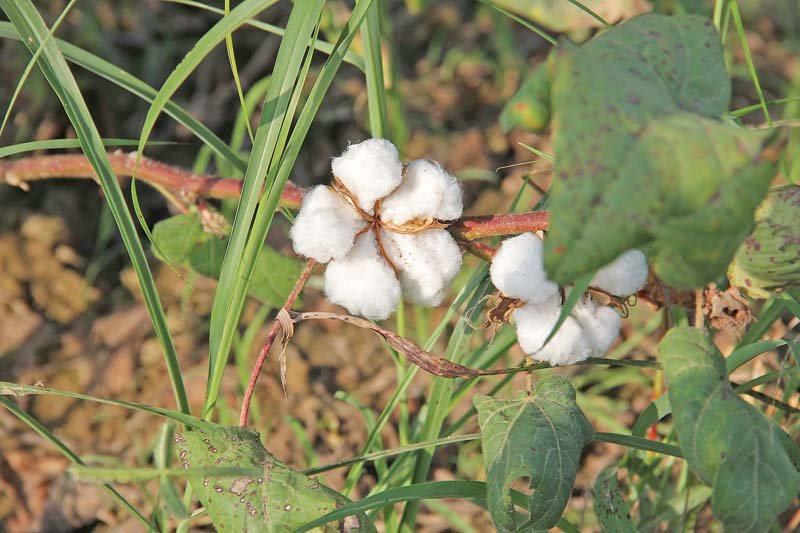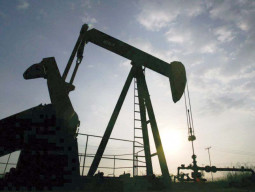
They say reality is best served plain. At the risk of being condemned for being melodramatic, I would say the cotton produce has not just declined steadily over the years but also with the help of the high and mighty. Owing to complex produce statistics thrown in your face, the real story remains hardly spoken.
Analysis: Is PM’s textile package the answer to falling exports?
For instance, a recent assessment by the Cotton Crop Assessment Committee (CCAC) Pakistan puts expected produce at 10.542 million bales (1 bale equaling 170 kgs) during the current season. Without being contextualised, the numbers make little sense for an average Pakistani.
To contexualise, the highest cotton produce recorded so far was in 2004 registered 11,138 million bales while the nearest spike was in 2014 at 10,600. Why on earth is the country’s signature cash crop registering steady decline when technology and seed both should have helped otherwise. The year 2015 was the worst since 1998 as production fell to 7,000 million bales.

The decline in cotton crop production can be understood by examining certain key factors, for instance area of cultivation, impact of insect pests, disease situation, market pattern and above all role of the regulator (the state).
Reason for declining production
Here is the reason as to how and why: In 2016, cotton was sowed on 20% less area in Punjab given the consistent trend of lower prices, decreasing rate of return relative to other crops and of course overall weather forecast. If a not-so-scientific crop assessment criterion is to be believed, the CCAC estimate Punjab producing 6.903 million bales, Sindh 3.6 million, Balochistan 3,800 and Khyber Pakhtunkhwa 1,000.
Cotton import: APTMA urges govt to remove duty
The imminent affectee of discouraged cotton producers is the ginner who waits throughout the year for a bumper yield. The Pakistan Cotton Ginners Association (PCGA) is totally disappointed at the projected estimates. To them, 20,000 million bales will be at par not only with their needs but also for the country’s economy.
Dr Jeso Mal who heads the association recently asked the government to take practical measures to be able to export the high value produce and value-added products while saving Rs40 billion otherwise spent to import some 4 million bales.
The industry as well as farmers disagree that climate change and erratic rainfall can be blamed for the cotton produce crisis. While they seek better seeds and better price, they remain extremely doubtful about outdated and untested genetically modified seed.
During the Zardari regime in 2010, the GM seeds legitimately entered the Pakistani market after being smuggled from India for almost a decade. While smuggling of cheaper and vulnerable GM seed sees its highs and lows, it is basically driven by weak pricing regime the cotton crop has been facing over the years. The trend raises questions about Pakistan’s seriousness to evaluate GM or BT (Bacillus Thuriengisis) seeds from the perspective of its peculiar climate, soil and fertilisers etc.
Sans stringent GM seed evaluation criteria along with incentive to the farmers, the produce will increasingly become unpredictable and vulnerable. Moreover, local research on cotton seeds has been a crucial guiding star until funding crunch hit it hard. The ugly reality is that the existing GM seed is too weak against the pest and worms, which have evolved strong immunity to its toxins.
Govt will not allow cotton import duty-free: Bosan
The issue of decline of cotton produce due to seed-related issues, lack of proper pricing and soaring cost and use of pesticides is here to stay, requiring urgent consultation and policy formulation.
The not-so-idealistic dream of doubling Pakistan’s cotton produce can’t be realised without restoring the growers’ confidence, which not only begs boost by ensuring good price but also provision of quality seed.
The writer is an investigative journalist and academic with extensive reporting experience in the Middle East and North Africa
Published in The Express Tribune, January 16th, 2017.
Like Business on Facebook, follow @TribuneBiz on Twitter to stay informed and join in the conversation.

1729161093-0/liam-(4)1729161093-0-165x106.webp)















COMMENTS (1)
Comments are moderated and generally will be posted if they are on-topic and not abusive.
For more information, please see our Comments FAQ